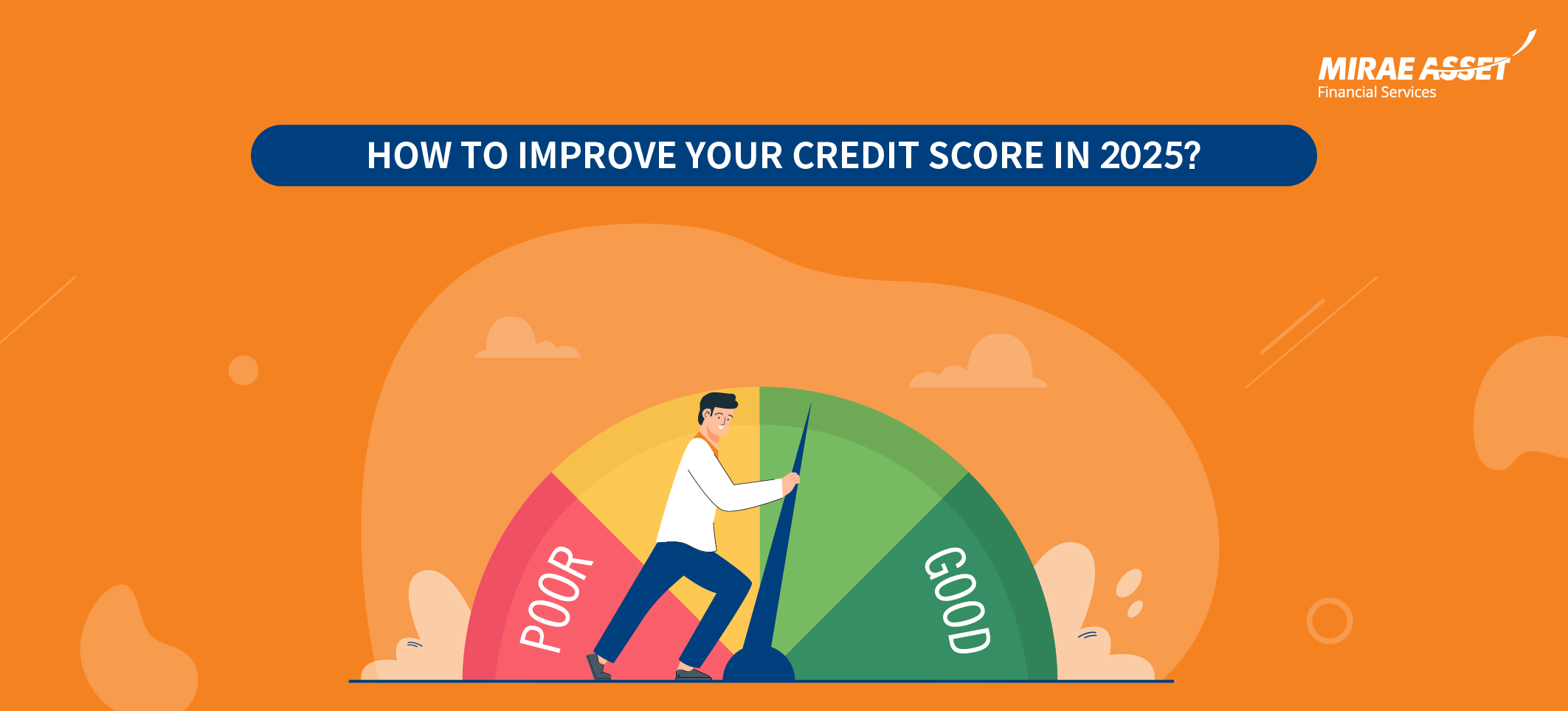How to Improve Your Credit Score in 2025?

What is a Credit Score and Why Does It Matter?
Your credit score is a report card for your financial behavior. It's a three-digit number, typically ranging between 300 to 900, that lenders use to evaluate how creditworthy you are. The higher your score, the better your chances of getting approved for loans or credit cards, and at better interest rates too!
Understanding the range of credit scores:
Credit scores are typically categorized based on the ranges shown in the table below, although these ranges may vary across different lenders.
| Credit Score Range | Rating | What it means |
|---|---|---|
| 750 – 900 | Excellent | You’re likely to get loan approvals easily at the best interest rates. |
| 700 – 749 | Good | Good chances of loan approval; slightly higher rates might apply. |
| 650 – 699 | Fair | Approval is possible but with stricter terms. |
| 600 – 649 | Poor | May struggle to get credit. High interest rates are likely. |
| Below 600 | Very Poor | Most lenders will see this as high-risk and your loan application may be rejected. |

TO GET STARTED WITH YOUR PERSONAL LOAN APPLICATION
A low credit score can lead to loan rejections, higher interest rates, or lower credit limits. That’s why maintaining a good credit score isn’t just good practice, it’s essential.
How to check your credit score online?
Checking your credit score is the first step toward managing it well. It is easy to check your credit score and you are entitled to one free credit report per year from each bureau.
Check your credit score with 5 simple steps:
- Visit the website of any credit bureau like CIBIL (TransUnion), Experian, CRIF High Mark, or Equifax.
- Click on the option to get your free credit report.
- Enter your personal details: name, date of birth, PAN, address, and contact number.
- Answer a few identity-verification questions.
- View or download your credit report instantly.
Why is Your Credit Score Low?
You may have a low credit score due one or more of the following reasons:
- Missed or delayed EMI payments
- High credit card usage or maxed-out cards
- Too many loan applications in a short span
- Defaulting on loans
- Errors in your credit report
- Having no credit history at all
How to Improve Your Credit Score?
It is easy to improve your credit score once you understand the factors that affect it. Whether your score needs a minor boost or a major makeover, the key lies in forming healthy financial habits and staying consistent. Below are some actionable steps you can take to build or rebuild your credit score over time. Think of it as a fitness plan, the results may not show overnight, but with discipline, they’re absolutely achievable.
1. Always Repay On Time
Whether it’s a personal loan, loan against securities, home loan, or your credit card bill, never miss your repayment deadlines. Even one late payment can dent your score. Set up reminders or auto-payments to stay on track.
Why it matters: Payment history is the most important factor in your credit score.
2. Diversify Your Credit Mix
A healthy mix of secured (like home or car loans) and unsecured loans (like personal loans or credit cards) reflects well on your credit profile. For example, someone with a mix of loans such as home loan, car loan, personal loan, etc may have a higher credit score than someone with only a car loan. (assuming they have similar repayment history)
Note: Having a mix of credit may not necessarily increase your chance of getting a loan, but it can improve your credit score.
3. Don’t Apply to Too Many Lenders at Once
When you apply for a loan or credit card, lenders make a "hard inquiry" on your credit report. Too many such inquiries in a short time can hurt your score. However, a “hard enquiry” does not have an effect on your score. So, you may ask for tentative loan offers from the lenders with just soft inquiries.
Smart move: Research first, shortlist the best options, and apply for loans selectively.
4. Check Your Credit Report for Errors
Mistakes could happen in your credit report. It could be a wrongly reported missed payment, a closed loan still showing as active or incorrect reporting of the type of loan.
Here’s what to do:
- Download your credit report
- Spot any discrepancies
- Raise a dispute with the credit bureau or lender
- Follow up until it gets resolved
Why it’s important: Unchecked errors can unfairly lower your score and cost you loan approvals or better loan terms.
Conclusion: Take Charge of Your Credit Health
Improving your credit score isn’t an overnight task, but it’s absolutely doable. All it takes is a little discipline, some patience, and regular financial hygiene.
Whether you’re planning to apply for a home loan, business loan, or even a personal loan, a strong credit score can get you better terms and lower interest rates.

